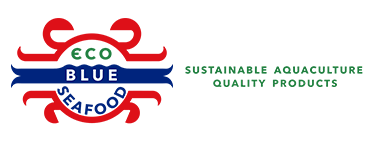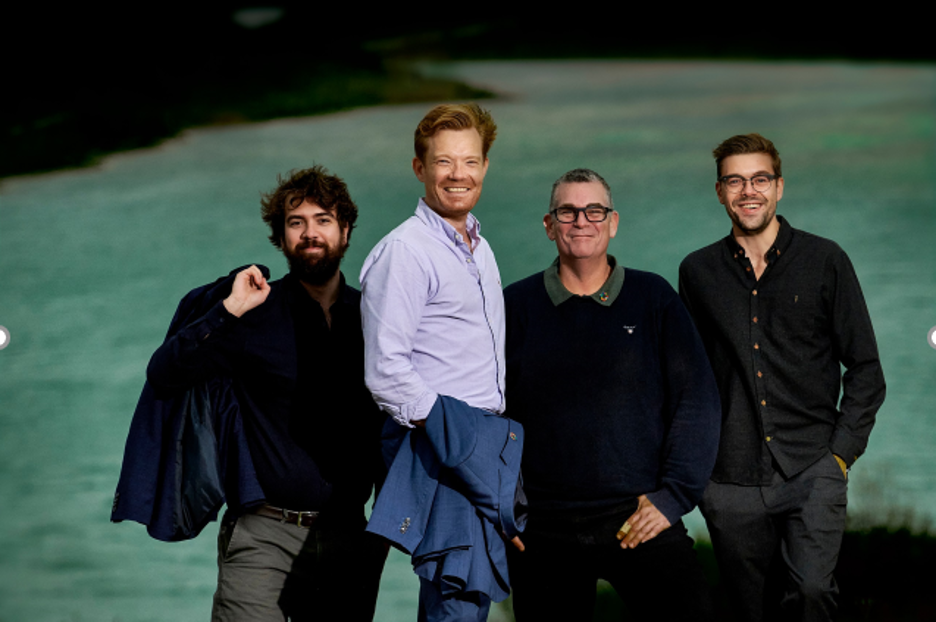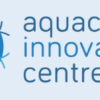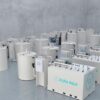Eco Blue Seafood was featured in a Danish business magazine, Business Roskilde. Company CEO, Mr. Martin Amdi Pedersen, was interviewed about the prospects of Eco Blue Seafood, the business model, and the sustainable “Hatchery2Harvest” concept:
‘Eco Blue Seafood – Sustainable Aquaculture is the Future‘:
The production of Mangrove Crabs in Southeast Asia is heavily influenced by conventional and inefficient methods. However, Eco Blue Seafood seeks to lead the market by focusing on sustainability and modern technology. The vision is to provide Mangrove Crabs for customers with high demands for quality in high-end markets, while having a very positive impact on local communities.
By Josephine Midtgaard Wolf
A distance of 10,000 kilometres from Roskilde (Denmark) to Indonesia does not keep the local firm, Eco Blue Seafood, from having an ambition for a more green and sustainable production of Mangrove Crabs. Many years of hard work, experience, dedication, and strategic partnerships provides the necessary tools and knowledge to change the industry.
-To modernise and optimise the commercial production of Mangrove Crabs has been the focus for the past years. The aquaculture industry and the Mangrove Crab species represent so many great potentials that it is impossible not to engage in it. My business partner, Paul Benfer, and I have used every waking hour to think about Mangrove Crabs and strengthening our concept – says Martin Amdi Pedersen, who is Co-owner and CEO of Eco Blue Seafood, and continues:
-All the hard work has been worth it. We have a deep respect for the traditions in Southeast Asia, however, the combination of traditional methods and modern technology will create great commercial results that otherwise would not be possible.
The central government in Indonesia, and local governments in several regencies have granted Eco Blue Seafood large land-areas, where the company will introduce its sustainable concept “Hatchery2Harvest®”. This concept is a contrast to conventional methods where wildlife crabs are caught in order to support the production/farming. The Hatchery2Harvest® concept takes control of the full value chain; Breeding animals (broodstock), hatching of eggs, nursing of larvae and crablets, harvest, and marketing of the final product of full-grown crabs weighing in at just shy of 1 kilo.
Sustainable production
According to Eco Blue Seafood, sustainability is the future of the aquaculture industry, and therefore it is crucial to have sustainability integrated in every company activity.
-At every step in our process, we ensure that the production will be organic and sustainable. We have designed a financially healthy and lucrative business model, and besides contributing to progress for the industry and local communities, the concept will also benefit the environment. In the world we are living in, it is naive to believe that you can build a business based on over-exploiting nature and local communities in order to maximise profits. The ‘green’ agenda is not to be ignored, and we have no intention to do so… on the contrary, says Martin Amdi Pedersen.
The hatchery phase and the early stage of growth within the life cycle of the Mangrove Crabs, will be monitored closely, and established in a clinical and closed environment. Afterwards the crabs will be released into the land-based ponds under the open sky.
-Because the crabs are in a fully monitored and clean environment, we are able to control the breeding to the smallest details. The bio-environment plays a crucial role in making the animals thrive, and as a commercial product of high quality. This means that we will not use chemicals to clean the water, but UV-light in the hatcheries, and in the ponds we will use a natural and self-cleaning bio-system. Furthermore, we have developed a circular water-management system, that in addition to the technology of our RAS (Recirculating Aquaculture System) partner, makes us able to minimise the water usage, says Martin Amdi Pedersen.
To ensure the company’s ambitions for a sustainable production, the Founder and COO of Eco Blue Seafood, Paul Benfer, will relocate to Indonesia. Through his many years of experience as a Senior Site Manager, he will ensure that production will be established correctly and introduce local employees to the concept of Eco Blue Seafood.
A focus on the local community
The areas in Indonesia, where the production of the Mangrove Crabs will be located, have been empty and not used by locals or companies for a long period of time.
-We have been vigilant in ensuring that we didn’t take any land, where local farmers or companies were forced out. Meanwhile, we have also wanted to ensure that the land area has not been cleared from forest and wildlife for the sake of establishing a production. We want to create better conditions for the local community and environment – not destroy it, Martin Amdi Pedersen emphasizes. It has always been a priority for Martin Amdi Pedersen and Paul Benfer to include the local community.
-The local communities in Indonesia are an important part of the project. We will provide jobs, education within modern aquaculture, and ensure that they are fairly paid and work under safe and appropriate conditions. We will use solar energy to run production, where the surplus of electricity will be transferred to the local power grid, which means that they will also be able to enjoy the ‘green’ energy. Basically, we need the help of the local communities. We cannot do this without them; therefore, it would only be natural for them to be involved and benefit, says Martin Amdi Pedersen.
Eco Blue Seafood expects that the facilities in Indonesia will create as much as 2,000 jobs at different levels, which will be occupied primarily by local people. Additionally, a close collaboration between Eco Blue Seafood and Aquaculture Innovation Centre in Singapore, will be the basis for future research and education across borders.
High quality organic products
Besides being a delicacy in Southeast Asia and Southern Europe, Mangrove Crab is also the main ingredient in the Singaporean national dish and is attributed to high health-related properties in China. The large crabs are targeted at a high-end market that requires quality and sustainability, and Eco Blue Seafood is fully aware of that.
-There is a gap in the market, where big Mangrove Crabs of approximately 700-900 grams are in high demand, but the supply is very limited. These large crabs are a delicacy and an exclusive product. They will be sold in a high-end market, where consumers value quality of the product and a production following organic principles in respect for the environment. Our products have to be of the very best quality – nothing less, says Martin Amdi Pedersen.
It takes about 10 months from egg to full-grown crab, whereas other shellfish, such as shrimp, can be harvested three times during the same period. This is one of the primary reasons why the commercial production of Mangrove Crab is very limited. Besides being extremely tasty, healthy, rich in protein, and full of omega-3 fatty acid, the crabs – in contrast to other shellfish – do not need antibiotics. They are very resistant and are generally not affected by diseases that would normally kill other aquaculture species.
Strategic partnerships is key
Over the past four years, Eco Blue Seafood has established several partnerships in order to reach the company goals and ambitions. They are now partnering up with Danish and international universities, such as the Technical University of Denmark (DTU) and Aquaculture Innovation Centre (AIC) in Singapore, where the company collaborates with aquaculture and Mangrove Crab experts on breeding, nutrition, biology, and animal behaviour.
-Our collaboration with DTU in Denmark and AIC in Singapore is very rewarding to us. Paul and, we are not educated within the technological and biological aspects of breeding. The partnerships, therefore, play an important role in terms of reaching our goals. The devil is in the details when it comes to the bio-environment and nutrition for the crabs and even the smallest detail can have a huge effect. They need to be fed the right diet, at the right time, and in the right amount…all of these aspects affect the growth, quality, and mortality, Martin Amdi Pedersen highlights.
Eco Blue Seafood expects to have boots on the ground on site in Indonesia by Q3 2021. Prior to this, a test environment will be built in collaboration with RAS technology partner Alpha Aqua in Esbjerg, Denmark. This will take place in close collaboration with Mangrove Crab experts from AIC, who will also be providing the broodstock for the initial phase, where all processes will be tested and adjusted before establishing the commercial production in Indonesia.



